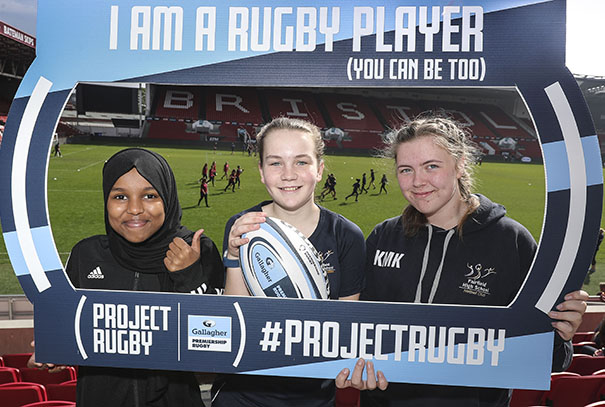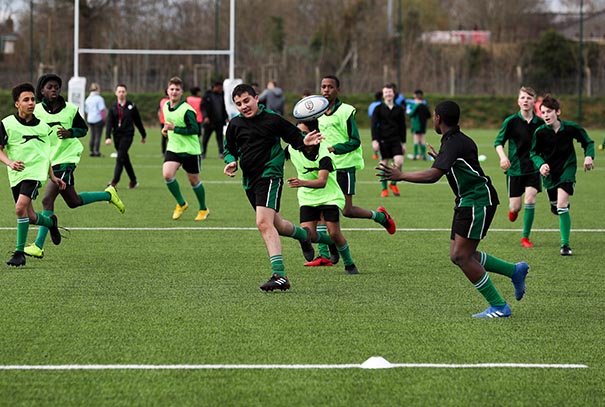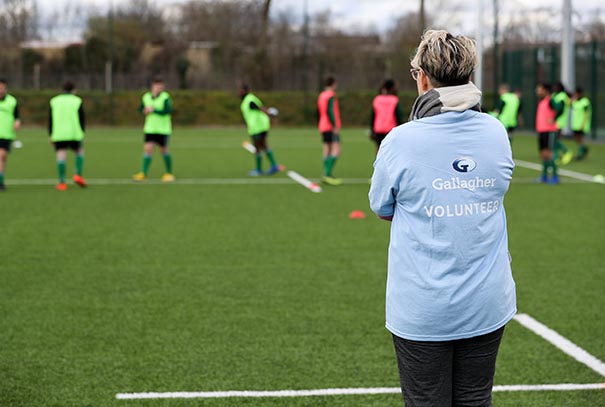An analysis of the most pressing concerns based on insights from 1,000 UK business leaders.

Project Rugby has been one of the game’s great success stories in recent years, introducing thousands of young people to rugby as a game for everyone regardless of background or ability. In a big step forward, the latest figures show more than 50,000 have now engaged with the programme, which is specifically designed to boost participation from traditionally underrepresented groups: young people from black, Asian and other ethnic minority communities; those from lower socio-economic backgrounds; and youngsters living with a disability.
Wayne Morris, Community & CSR Director at Premiership Rugby and one of the architects of the programme, explains: “Project Rugby is our flagship programme that looks at increasing the reach of the game. We are trying to take the game out to new audiences and give people the chance to participate in the game, many for the first time.
“Rather than expecting them to come to the game, we have taken the game to them and focused on removing barriers that may have prevented them taking part in the past.”

Since launch in 2017, more than 52,000 young people have engaged with the programme, including 42,000 from BAME or lower socio-economic communities and 9,000 who live with disabilities.
Collaboration is at the heart of Project Rugby. Initially set up in a joint partnership between England Rugby and Premiership Rugby, Gallagher became involved as a partner in 2019 after it took over sponsorship of the league.
Charlie Scott, Chief Financial Officer for Gallagher in the UK, explains why Project Rugby is so important: “When we got involved with Premiership Rugby as title partner, we always wanted to support the grassroots community side of things as much as the main league. As a community insurance broker that is really important to us.
“Project Rugby is a brilliant initiative and example of this. For us, its inclusive nature aligns really well with our culture as a company. It’s great for getting young people involved in sport, which we know has a positive impact on their lives.”
The programme is, of course, about far more than sport, as Charlie explains: "We did some research last year that showed 90% of young people involved in playing sport had increased self-esteem, confidence and resilience – all characteristics that are really important this year.
“Project Rugby’s accessibility is something else we’re proud of. It focuses on groups that don’t necessarily have easy access to rugby – whether that’s black, Asian or other ethnic minorities, different social groups or disabilities. So it gives opportunities to those who would not otherwise have them.”

In normal times, the programme operates at up to 500 sites a week with many in non-traditional rugby-playing locations, where access to the game is much lower. Over its first three years, many success stories have emerged, with thousands of young people transitioning into community clubs after being introduced to the game via the initiative. But Project Rugby delivers much more than access to a new sport, with many young people developing invaluable life skills and overcoming social isolation as they grow in confidence and capabilities.
“With any programme you support, you always think about the difference it can potentially make,” says Charlie. “And some of our Project Rugby case studies just make you go ‘wow’. Those individual stories really demonstrate the difference it is delivering. We are incredibly proud to be a part of it.
“Covid has naturally impacted the programme on the ground, but we’re keen to turn up the volume of our involvement as soon as we are able. We have a volunteer programme across all our branches and employees love getting involved, particularly in the festivals.
"We are also looking to help out more on the coaching side, so are supporting colleagues through the ‘Rugby Ready’ programme run by the RFU. I went along to one in March and it was great, really well run, and this means our colleagues who take the course can then contribute so much more when they volunteer.”
Wayne concludes: “We have managed to learn and understand about engaging new communities every year and with that the programme has become more and more successful. We work closely with England Rugby and Gallagher and without their support we would not have been able to reach the breadth and scale of audience that we have.”


